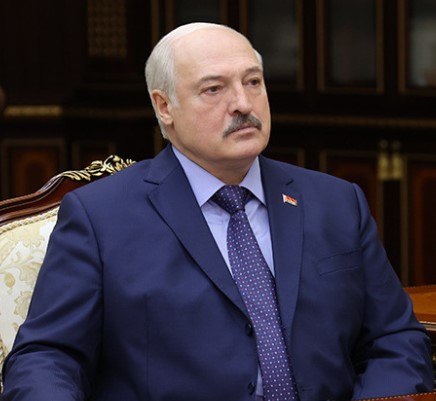Bailiffs began to block payments of collectors associated with foreigners

 Rapid 4 in 1 tests for determining the residual amount of neomycin, kanamycin, gentamicin, spectinomycin in milk, whey
Rapid 4 in 1 tests for determining the residual amount of neomycin, kanamycin, gentamicin, spectinomycin in milk, whey PIONEER MEIZHENG BIO-TECH (5 in1) JC0871/ Rapid tests for the determination of the residual amount of β-lactams, tetracyclines, chloramphenicol, streptomycins, ceftiofur in milk, whey.
PIONEER MEIZHENG BIO-TECH (5 in1) JC0871/ Rapid tests for the determination of the residual amount of β-lactams, tetracyclines, chloramphenicol, streptomycins, ceftiofur in milk, whey.
Banks and collection agencies with foreign participation are faced with the problem of debt collection through the Federal Bailiff Service (FSSP), three market sources told RBC. According to one of them, in recent days, the FSSP has begun to “freeze any recovery” in favor of some market participants with foreign roots, perceiving these organizations as non-residents and guided by presidential decrees on Russia’s response to Western sanctions . Another interlocutor of RBC confirmed that the problem exists, and called it "the kurtosis of the performer."
Putin introduced a special procedure for payments on foreign debts due to sanctions
Alexander Naumov, deputy HEAD of the National Council of the Financial Market, said that his organization has received similar complaints from banks and is preparing letters on this topic to government agencies. The Association of Banks of RUSSIA is also aware of the situation, said Sergey Klimenko, head of the legal department of the ADB. The National Association of Professional Collection Agencies reported that some members of the association "drawn attention to the decrease in payments to them." NAPCA turned to the bailiff service for clarification. RBC sent a request to the FSSP.
Why Russian retaliatory sanctions affected collectors
Since February 24, Russia has been conducting a military operation in Ukraine, after it began, the authorities of the United States , the European Union, Great Britain and other countries adopted several packages of restrictive measures against Moscow. March 1, President Vladimir Putinsigned a decree issued in response to Western sanctions. The document, in particular, provides for restrictions on transactions and operations of Russian companies or persons with residents of unfriendly countries (now there are 48 states on the list). We are talking not only about organizations registered abroad and operating there, but also controlled from abroad, for example, having foreign beneficiaries. Operations with such companies can now be carried out only after receiving the approval of a special government commission. On March 5, Putin signed a decree on a new procedure for settlements with certain foreign creditors. The document provides for restrictions on the repayment of obligations to foreign creditors if the debt exceeds 10 million rubles.
The adopted decrees on counter-sanctions are subject to various interpretations, says Timur Tazhirov, a lawyer at Forward Legal. “It is not surprising that the FSSP could overly broadly interpret the restrictions on the execution of loan agreements to residents of the Russian Federation with foreign participation,” the lawyer concludes.
Read together with it:
- Новые горизонты сотрудничества: Россия и Аргентина обсуждают совместный доступ на рынки продукции животного происхожденияОдной из ключевых тем конференции стал контроль за производством ветеринарных препаратов в Аргентине. Аргентинская сторона представила свою систему контроля, включающую Управление ветеринарных продуктов и Управление лабораторий животных. Эти организации обеспечивают высокие стандарты безопасности, так как каждая производственная единица подвергается проверкам каждые 3-5 лет и зарегистрирована в ин...
- С января по июль экспорт свинины из ЕС вырос на 1,6%На втором месте оказались Нидерланды с объёмом экспорта в 392 000 тонн. Дания экспортировала свинину в третьи страны с объёмом в 308 000 тонн, что примерно на 13% меньше, чем в предыдущем году. Германия экспортировала 180 000 тонн, что на 18% меньше, чем годом ранее. Это было обусловлено, главным образом, дополнительными ограничениями на экспорт, вызванными вспышкой ящура в начале года. Помимо зап...
- В Кремле пообещали ответ на санкции сообразно интересам РоссииДмитрий Песков В Кремле начали анализировать введенные санкции для разработки ответных мер, заявил пресс-секретарь президента России Дмитрий Песков, передает корреспондент РБК. «В настоящий момент анализируются те санкции, которые определены. Будем делать то, что наилучшим образом соответствует нашим интересам», — сообщил Песков, отвечая на вопрос об ответных мерах России. 19-й пакет санкции Еврос...
- Zakharova promised "tough steps" in response to the 19th EU sanctions package.Maria Zakharova RUSSIA will respond harshly to the latest round of EU sanctions, Russian Foreign Ministry spokesperson Maria Zakharova stated on TELEGRAM . The EU previously adopted the 19th package of anti-Russian sanctions, which included a ban on the import of Russian LNG, new restrictions on oil companies, ships, banks, and the EXPORT of certain goods, as well as restrictions on the movement o...
- США ввели санкции против президента КолумбииПрезидент Колумбии, его жена и старший сын, а также глава колумбийского МВД попали под санкции США из-за трафика наркотиков из Колумбии в Штаты. Бессент обвинил Петро в отказе пресечь деятельность наркокартелей Густаво Петро Минфин США ввел санкции против президента Колумбии Густаво Петро, сообщается на сайте ведомства. «Президент Петро позволил наркокартелям процветать и отказался пресечь их деят...


























































